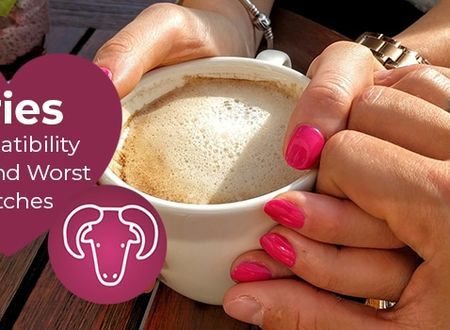What is the most basic human desire, the one that sits at the core of humanism and humanity, the most fundamental human need, the one that can make or break your world, the one emotion that makes all the difference between feeling priceless and feeling worthless? Is it to love and feel loved? Or the feeling of being successful?
Based on my observation and interactions with a large number of people over the years, I have come to understand that underneath all reactions and above all emotions, lies a potent desire, it’s elementary, it’s casual, it’s atomic, you can’t break it down any further — it’s the desire to feel loved.
The desire to be loved back, to be adored, appreciated, to be recognized, to be accepted by someone, the desire to just belong somewhere, to someone, is one of the strongest.
People fall out, they grow out, they may even loathe the very people they had once loved; it happens, especially when they don’t feel wanted the same way they did in the beginning. Nothing hurts more than neglect. Being neglected doesn’t only mean someone ignores you; this is only one form of neglect. When you are not accepted for who you are, when you are not appreciated for your efforts, when you are not loved for what you are, that is neglect too; you don’t feel loved, and that hurts. Let me share with you a real-life story my lawyer told me thirteen years ago.
It happened in 1985. A seventy-year-old man from Serbia migrated to Australia. Let’s call him Pavle. His three sons were already living there; they had been there for more than a couple of decades. They sponsored their father under the family visa category. Pavle was a widower. Things were not glorious for him in Serbia. He’d lived a hard life, felt lonely and longed to be with his sons. It was a close-knit family, and he had waited over six years to get his permanent residency.
Upon his arrival in Australia, his three sons received him at the airport. Things were well in the beginning, but soon, his sons felt they couldn’t be bothered feeding their father or offering him shelter. He only needed a place in a home, in his sons’ hearts, and a square meal a day, but his sons now saw him as a burden; they started neglecting him. Over the next two years, he felt more and more unwanted, rejected, unloved, even hated, by his sons. He didn’t speak English, so there wasn’t anybody on the streets or in the park whom he could converse with.
Pavle adopted some rather peculiar behavior; he would stand next to a pedestrian crossing, wait for the traffic to approach, and as soon as the cars came nearer, he would start crossing the road, halting the traffic. Ordinarily, any car would have no issues in stopping because it was a pedestrian crossing after all.
In this case, however, Pavle was doing it every day, all day. He would get to the other side of the road, wait for more cars, and then cross the road again. It caused great inconvenience. Eventually, the cops issued him a ticket for misconduct and obstruction of traffic. He simply ignored the ticket. Multiple tickets later, he had to appear in court and face charges.
“It’s an unusual case,” the judge said. “Your medical history shows nothing is wrong with you, yet you repeatedly exhibited mindless and dangerous behavior on the road. You are pleading guilty too. I am at my wit’s end. What do you have in defense?”
“Human,” Pavle responded. “I felt human.”
“Human? The court has no time for riddles. Be clear.”
With the help of his son, who acted as an interpreter, Pavle continued: “Your Honour, I felt loved. It felt great to see that someone finally saw me as a human being. I felt a strange joy to see someone stop for me. I felt I was not just an obnoxious weed waiting to be pulled out but that I was a part of the crop a farmer couldn’t wait to harvest. The dignity and respect I felt when cars stopped for me made up for all the loss of respect I experienced my whole life. I felt valued. It was worthwhile. I recognize that I caused much trouble, and I regret it. I promise I won’t repeat it.”
The judge spoke warmly yet firmly, “Australia is a free nation with the utmost respect for every individual on this young soil. You’re asked to be mindful of your future actions so others may enjoy the same privilege. The court grants you a pardon. Case dismissed.”
Pavle’s son broke down in court after hearing his father. They both hugged each other in the corridor just outside and cried to their heart’s content. Pavle began receiving an old-age pension soon after he got his Australian citizenship, and he remained there until his last breath. Happy ending.
Not all sons realize though, and some do it a little too late. Not all Pavles are redeemed, not all endings are happy. Plus, how does it matter anyway what the end is like? Who cares whether one is buried or cremated, whether the world remembers or forgets you after you’re gone? It’s the journey that’s important. For, it’s the nature and quality of your journey that has a direct impact on you and those around you. This post is not about sons and fathers — it’s just about being human.
To feel loved is not a privilege but a basic human necessity. It is rudimentary. Unfortunately, in our world today, most are deprived of love. It’s often a futile exercise to keep searching for love or to keep wanting it from someone else. Therefore, if you are not being loved by someone else, learn to love yourself.
It takes a while to get to that state — to be in love with yourself, selflessly. Until then, give your love to others, to those who want it. And then, one day, you will find yourself gazing deep into the soothing light of transformation; you will discover yourself in a deep ocean of bliss, as your heart will overflow with warmth and love, washing away all the pain and hurt life put you through, to feel loved. When you adopt compassion and serve His creation, Providence arranges for precisely what is lacking in your life. Lacking — not as you may define it but as in what you may need.
Go on! Express your love. Make someone feel special; make them feel loved. For, you won’t understand what feeling loved is like, unless you make someone feel loved.
Peace.
Swami
A GOOD STORY
There were four members in a household. Everybody, Somebody, Anybody and Nobody. A bill was overdue. Everybody thought Somebody would do it. Anybody could have done it but Nobody did it.
Don't leave empty-handed, consider contributing.It's a good thing to do today.









Comments & Discussion
20 COMMENTS
Please login to read members' comments and participate in the discussion.